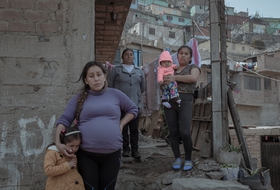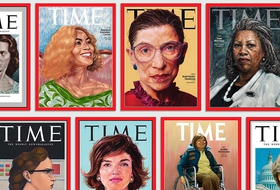
One in three women have suffered physical or sexual violence. With contributions from Europe, Africa, Asia and Latin America, we look at how this shadow pandemic affects every corner of the world.
Nonostante fame, povertà e violenza le donne del Sud Sudan portano avanti la propria vita con dignità. Only a woman è il reportage che mostra tutta la loro forza.
In December 2013, South Sudan’s President Salva Kiir accused former vice-president Riek Machar of attempting a coup. In short, the political dispute turned into an ethnic conflict between the Dinka and Nuer tribes. The conflict caused more than 2.3 million displaced people (of which 1.65 million internally displaced) mainly coming from northern states, such as the Greater Upper Nile and Unity State, where the country’s largest oil fields are located.
A report released by the United Nations on 12 March 2016 accuses the government of allowing the military to plunder villages, kill civilians and rape women in reward for their work. Since the beginning of the conflict, more than 50,000 civilians have been killed and over 1,300 rapes have been registered. That’s because rape has become a weapon in South Sudan.
In July 2016, just before the celebration of the fifth anniversary of the independence of South Sudan and after the fragile peace accord signed in 2015, new clashes broke out in the capital Juba in which over 300 people died, causing a new wave of violence.
1 in 30 women risk dying in South Sudan from causes linked to pregnancy and birth, as well as the lack of access to healthcare facilities. 1 in 10 children die before turning 5 due to malnutrition or diseases easily treatable with proper healthcare facilities.
The city of Mingkaman didn’t exist until the conflict. Now it is home to 150,000 refugees, where they found peace, shelter, food and care thanks to the World Food Programme (WFP) and the support of NGOs.
This is a place where the post-traumatic stress disorder – which is widely spread after decades of conflict – isn’t recognised and treated. A place where pregnancy threatens the life of young women, and children live on the street, alone, with barely any clothes on, barefoot on the hot, red land. In Mingkaman temperature reaches up to 56 degrees, with no running water, where the only shelter from sun is the shade under a canopy.
The WFP has provided each family with a card and once a month women and children line up early in the morning for food. Here, these issues are incumbent on women alone, just like pregnancy and childcare. You can see them, hundreds of them, with their baby bump waiting in line for hours, patiently, sitting on the floor or on old milk powder cans. In the end, they carry sorghum sacks on their head, heading back to the only road in Mingkaman.
In the maternity ward of the hospital in Bor there’s a room and a bed with a small mosquito net protecting a baby. His mother abandoned him in front of the nearby market after giving birth. He was conceived by rape. Before him, his mother had four more children in the same way. She lost her mind and killed them. After years of violence, these women don’t perceive a child they way it should be. To them, it’s just a reminder of the horror they’ve experienced. These women carry an immense burden on their shoulder and continue to live with all the strength in the world.
Siamo anche su WhatsApp. Segui il canale ufficiale LifeGate per restare aggiornata, aggiornato sulle ultime notizie e sulle nostre attività.
![]()
Quest'opera è distribuita con Licenza Creative Commons Attribuzione - Non commerciale - Non opere derivate 4.0 Internazionale.
One in three women have suffered physical or sexual violence. With contributions from Europe, Africa, Asia and Latin America, we look at how this shadow pandemic affects every corner of the world.
The Istanbul Convention against gender-based and domestic violence marks its tenth anniversary. We look at what it is, who its signatories are, and what the future might hold.
European Commission President Ursula von der Leyen reminded us of the gravity of violence against women around the world, and of the Istanbul Convention’s utmost importance.
President Erdoğan has pulled Turkey out of the Istanbul Convention, key in the fight against gender violence, claiming that it favours the LGBT community rather than family values.
Violence against women in Peru has increased as a result of Covid-19 lockdowns. 14,912 people were reported missing from January to November 2020, more than half of them minors and 64 per cent women. People have been confined to their homes for months, many forced to endure poor physical, economic and social conditions. A situation that
Joys Estefani Qqueccaño Huamani, 24, disappeared from her rural community in Peru on 9 October. Her family began looking for her independently of the authorities and despite the resistance of relatives of Joys Estefani’s ex-partner Arturo Ccana Condori, 32, charged with committing violence against her on 28 September, eleven days before Joys Estefani disappeared. Photos
Costa Rica celebrated its first same-sex marriage when two women, Alexandra Quiros and Dunia Araya, celebrated their wedding: an “extraordinary moment”.
The pandemic and its restrictions are affecting everyone, without exceptions. However factors like housing, income inequalities, gender, access to technology and working conditions are influencing how people experience the health crisis.
Time magazine’s 100 Women of the Year project sheds light on influential women’s stories, from Amelia Earhart to Greta Thunberg. A selection of some of the greats for International Women’s Day.








